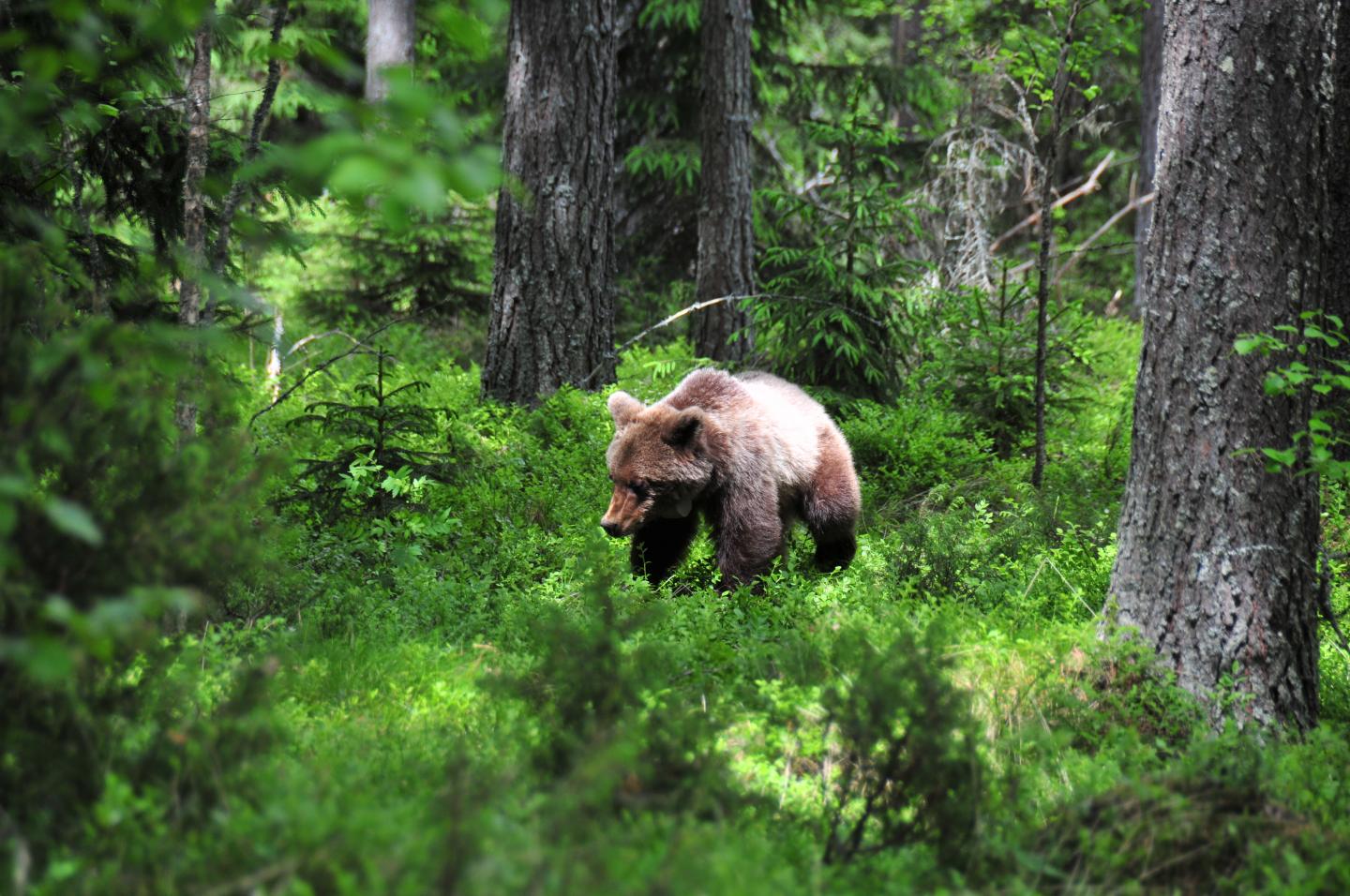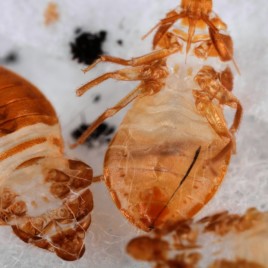
The brown bear (Ursus arctos) if native to Northern and Western Canada, and can be found in the Yukon, the Northwest Territories, British Columbia, and parts of Alberta. (Image credit: Ole Fröbert).
Bears eat intensively to put on weight for winter hibernation but don’t seem to suffer the negative health effects of obesity, thanks to the microbiota in their digestive tract.
By analyzing fecal samples researchers found the microbiota in a bear’s digestive tract changes when the bear is preparing for hibernation. The researchers believe some of the changes in microbiota arise from eating an increased amount of insects during the summer, as some of the microbiota share a symbiotic relationship with those insects.
Additionally, the researchers believe calorie restriction during hibernation plays a role in changing some of the microbiota, as calorie restriction has similar effects in humans and mice.
During the summer months the gut microbiota changes to become more efficient at harvesting energy from food, allowing the body to store more fat without impacting glucose metabolism, a negative health effect associated with obesity in humans.
Researchers took samples of the microbiota from fecal samples from wild brown bears, and injected the microbiota into mice in the lab. Mice injected with summer microbiota showed greater weight and fat gain with no negative effect in their glucose metabolism. Some of the ‘summer’ mice showed an improvement in the glucose metabolism compared to mice injected with winter microbiota.
Original research paper published in Cell Reports on February 4, 2015.
Names and affiliations of selected authors

